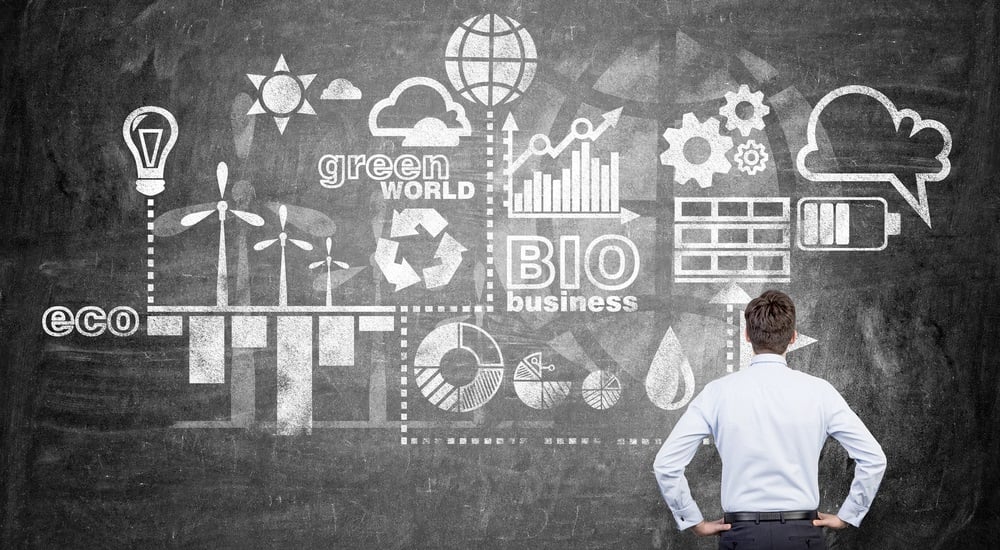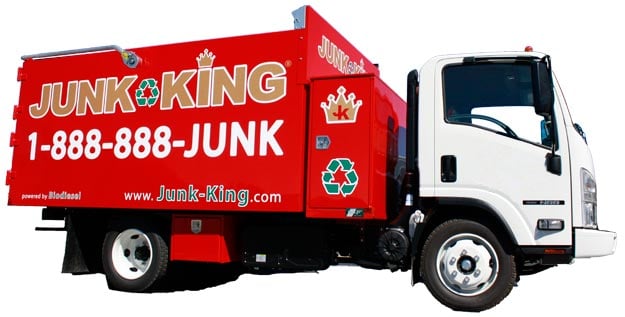
We generate millions of tons of organic waste every year in the United States. And most of it ends up in our landfills. But that is changing now and for the better.
Back in 2018 the EPA estimated that we tossed out over 63 million tons of food and organic waste. And that almost 56 percent of it was landfilled.
Living in a Renewable World - Bioenergy and Waste
Simply put, bioenergy is energy produced from renewable, biological sources. This can include organic materials such as biomass.
As one source explains, biomass is plant material that can be turned into fuel (also known as biofuel when it is made from biological material) to supply heat and electricity. Bioenergy can be obtained from many forms of biofuels.
In fact, biomass can be used to produce renewable electricity, thermal energy, or transportation fuels (biofuels).
And according to the U.S. Department of Energy (DOE),
The two most common types of biofuels in use today are ethanol and biodiesel, both of which represent the first generation of biofuel technology. The Bioenergy Technologies Office (BETO) is collaborating with industry to develop next-generation biofuels made from wastes, cellulosic biomass, and algae-based resources.
In addition, organic waste extracted from household garbage is being used to produce synthetic fuels for the aviation industry.
Along with providing renewable substitutes for fossil fuels in the production of energy, biomass can also become renewable substitutes for the many industrial products and materials typically made from petroleum or natural gas. These include biobased foams, plastics, fertilizers, lubricants, and industrial chemicals.

More Bioenergy Products Means Less Landfill Waste
In Vermont and California, food waste can no longer be dumped into landfills. Instead, recyclers are diverting the collected organic materials for composting or to be processed by special facilities for turning it into energy through anaerobic digestion, a process that creates biogas that can be used like natural gas for heating and electricity.
Other states and municipalities have also launched programs to mandate food waste recycling with the goal of reducing the massive amounts of organic waste that currently goes into landfills throughout the country.
In addition, bioenergy products and processes also result in decreased use and dependency on fossil fuels.
Here is a graphic snapshot of the state of bioenergy in America:

Share this Image On Your Site
One of the great aspects of bioenergy production is the wide variety of available biomass feedstocks.
As the DOE website explains,
Biomass feedstocks include dedicated energy crops, agricultural crop residues, forestry residues, algae, wood processing residues, municipal waste, and wet waste (crop wastes, forest residues, purpose-grown grasses, woody energy crops, algae, industrial wastes, sorted municipal solid waste [MSW], urban wood waste, and food waste).
And one of the best parts about bioenergy in America is that it can literally "start at home."
Changing the Energy Landscape of America - One Load at a Time
An amazing 80 percent or more of all the junk, trash, waste, and rubbish that we dispose of every day is potentially recyclable. The problem is that far too much of it simply ends up in landfills instead.
But waste products made of materials such as steel, aluminum, glass, and paper are often 100 percent recyclable. And some of them can be recycled over and over almost infinitely. In fact, even waste items such as used mattresses are largely recyclable as are almost all household appliances.
And something that most homeowners and tenants in single-family homes have in common (aside from tons of food waste!) is yard waste.
These organic materials can be composted or otherwise processed to produce other types of fuel and recycled products. As the DOE points out,
MSW (municipal solid waste) resources include mixed commercial and residential garbage, such as yard trimmings, paper and paperboard, plastics, rubber, leather, textiles, and food wastes. MSW for bioenergy also represents an opportunity to reduce residential and commercial waste by diverting significant volumes from landfills to the refinery.
When it comes to household and commercial junk removal and waste disposal, working with Junk King means knowing that as much of your waste and junk as possible is going to be reused or recycled.
It's what we do and has been a core aspect of our corporate vision and mission since our company was founded.
Junk King: Doing Our Part to Help Keep Our Planet Clean and Green
Whether you are cleaning up your yards after winter storms, or preparing for the upcoming spring, we can be the resource you need to get rid of organic waste and other types of unwanted junk. And, best of all, our professional and friendly crew can do the heavy lifting and hauling for you.
Or, depending on where you live, you can even load your own trash, debris, and household junk yourself by renting one of our user-friendly MINI Dumpsters.
Either way, we have the best and greenest solutions for you.
After you book an appointment with us, our expert and insured trash and junk removal team will call 15 to 30 minutes before we show up at your home. And once they arrive at your home they'll give you a free estimate based on how much room your junk and trash items take up in our truck.
Then you just point and we’ll haul your household or workplace rubbish and junk into our junk removal trucks - and we'll do it all without any hidden fees!
So, ready to have your organic waste removed and recycled? It’s as simple as 1, 2, 3.
Just make an appointment by booking online above or by calling 1.888.888.JUNK (5865).





